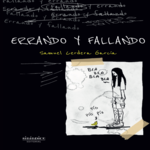Seether, aprovechando la tecnología para sonar mejor
Seether Talk New Album ‘Isolate and Medicate,’ Band Camaraderie + Touring

Sacado de // From –> http://portalternativo.com/ – http://loudwire.com/
Seether se pasaron hace unos días por los micrófonos de “Full Metal Jackie” para hablar de “Isolate And Medicate”, su próximo disco, que se publicará el 1 de julio.
Creo que con cada álbum hemos mejorado en lo que hacemos y somos más eficientes en el estudio. La tecnología, sin duda, ayuda. Pro-Tools no hay duda de que ayuda. Pro-Tools es un arma de doble filo. Puede ser malo o hacer que una banda mala suene terrible si se abusa. Es como todo. Como las imágenes generadas por ordenador, puede estar bien siempre que no se abuse y quede falso. Pro-Tools puede hacer que algo suene falso pero también puede que algo suene realmente bien.
Además, con los ordenadores hoy en día puedes sacar grandes sonidos de los equipos. Puedes emular sonidos analógicos. Sé que podemos crear discusiones eternas con la gente por ello pero era el objetivo. Brendan (O’Brien) y su equipo tienen ese sistema ahí con el que parece que se ha grabado todo en cinta de verdad. Creo que lo que hacen es genial y suena genial. Además me parece un equipo realmente eficiente. Entramos sabiéndonos las canciones al revés. Así que al saber lo que teníamos que hacer, no fue cuestión de hacer 4-5 tomas de todo. Creo que John (Humphrey) hizo una o dos tomas en la mayoría de sus partes de batería. Dale (Stewart) tuvo que aprenderse las canciones antes de que hiciera sus partes de bajo. Pero cuando se las supo, fue cosa de 1-2 tomas. Son canciones con las que hemos vivido durante mucho tiempo así que cuando llegó el momento de meternos (en el estudio), sabes cual es tu parte y cual es tu rol.
Del primer single, “Words as Weapons”, cuenta Humphrey:
Era una canción que grabamos e intentamos añadir al grandes éxitos el pasado año – “2002 – 2013. Salió bastante bien así que decidimos guardarla y esperar y añadirlo al próximo lanzamiento. Así que hacía un tiempo que teníamos esa canción. Se hizo en una sesión en junio del pasado año y fue una especie de gran hito para lo que debía ser el resto del ‘álbum’ o al menos tan potente como eso. Nos puso a tono y nos dio una meta, si quieres llamarlo así.
Si queréis leer la entrevista al completo, en inglés, pasaros por –> Seether Talk ‘Isolate and Medicate’ Album + Touring
IN ENGLISH
‘Isolate and Medicate’ is going to be out on July 1. The album was recorded in just 16 days. Is it a point of pride for all of you that these songs are so good that there’s no need to spend a lot of time fine tuning anything?
SM: I’d like to think that we’ve gotten better at what we do with each album and are more efficient in the studio. Technology certainly helps. Pro-tools definitely helps. Pro-tools is kind of a double-edged sword. It was be bad, or make a band sound terrible if it’s abused. It’s like anything. Like CGI, it can be cool in a movie unless it’s overdone and just looks fake. Pro-tools can make something sound fake, but you can also make something sound really good.
Also, computers these days you get great sounds out of rigs. You can emulate analog sounds now. I know we can get into arguments with people about that all day, but that was the point. A lot of studio sound is quite digital these days because of that system and being the industry standard. Brendan [O’Brien] and his team have got that system down where it sounds like you actually went into a tape machine. I think what they do is great and it sounds great. I think they’re also a very efficient team, and we went in knowing our songs backwards. So, because we knew what we needed to do, it wasn’t a question of doing 4-5 takes of everything. I think John did one or two takes at most of his drum parts. Dale had to learn the songs before he did his bass parts. But, when he got them down it was a 1-2 take bass guys. These are songs that we’ve lived with for a long time too, so by the time we get in, you know what your part is and what your role is. So you get in and knock it out.
Tell me about the song ‘Words as Weapons.’
John Humphrey: That was a song we had recorded and intended to add to the “greatest hits” last year — the ‘Seether 2002-2013.’ It turned out really good so we decided to hold off and wait, and add it to this next release. So, we’ve had the song for some time. It was done in a session of June of last year and it was sort of a great, benchmark for what the rest of the album needed to be, or be as strong as. It kind of set the tone and gave us a mission statement, if you will. It set the bar for how the album and the material we needed to subsequently write and put together. And so it’s found it’s way to be the first single.
Read More: Seether Talk ‘Isolate and Medicate’ Album + Touring | http://loudwire.com/seether-isolate-and-medicate-camaraderie-touring/?trackback=tsmclip




